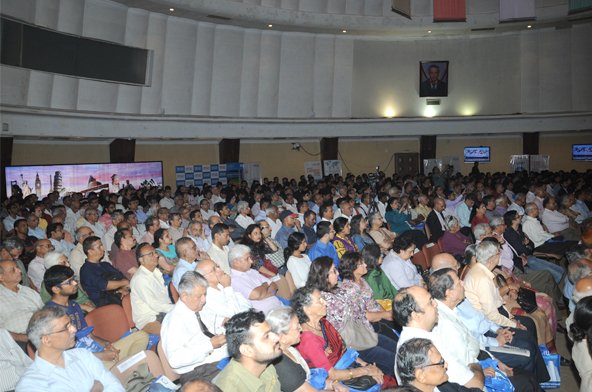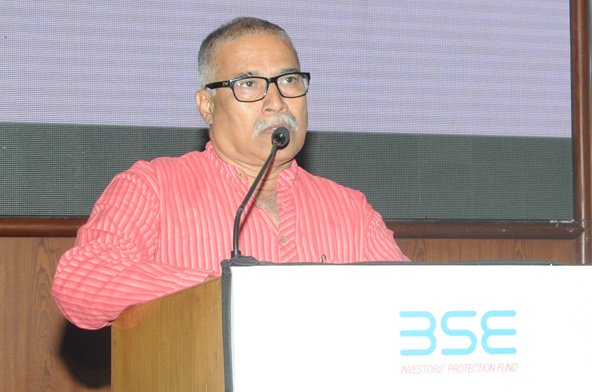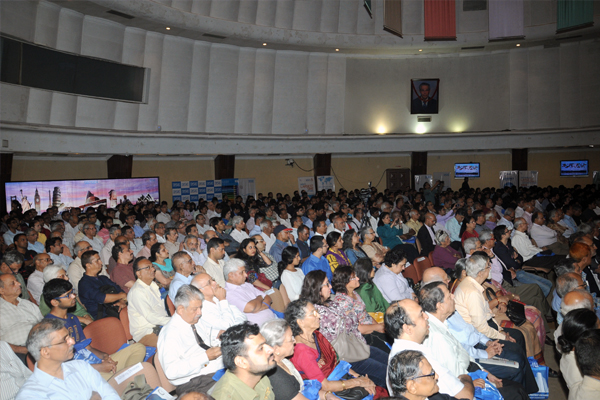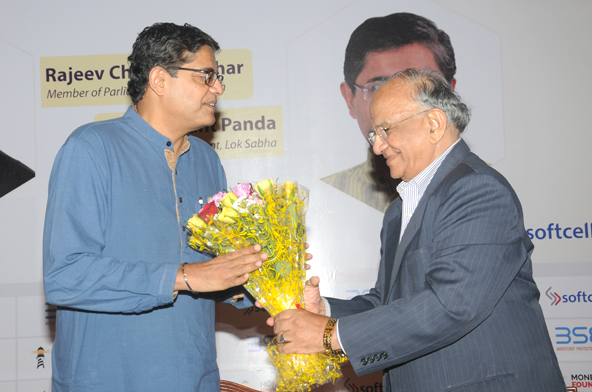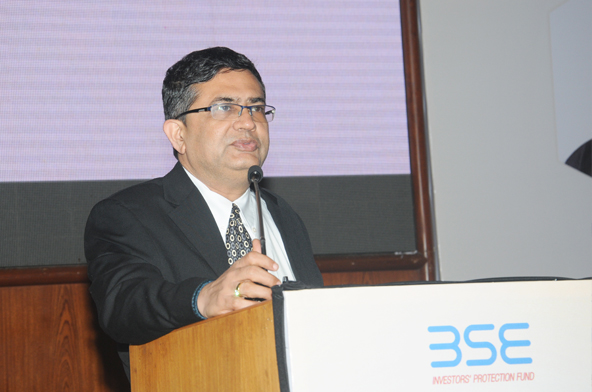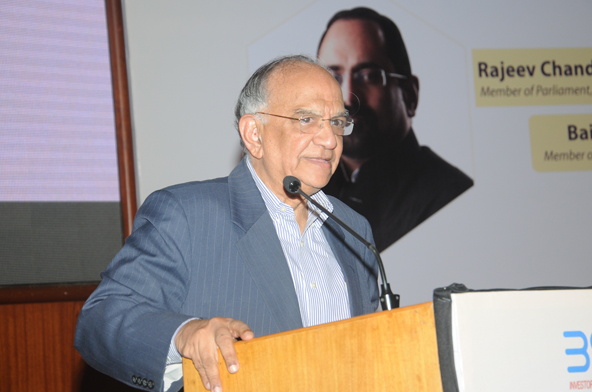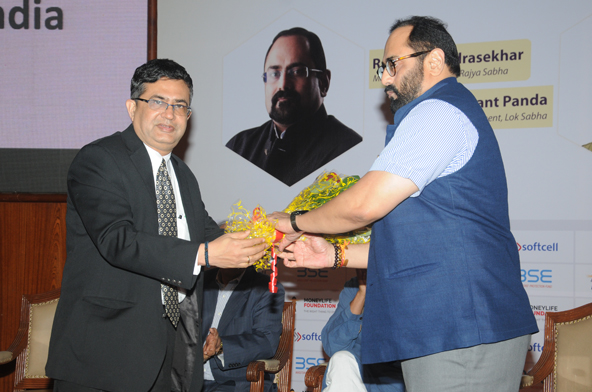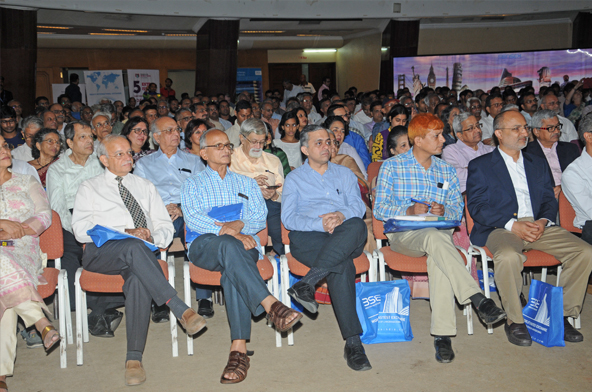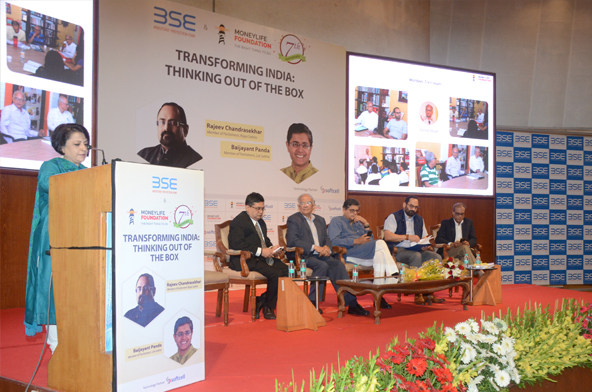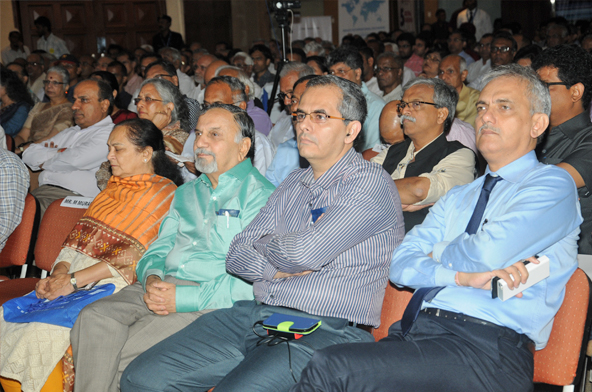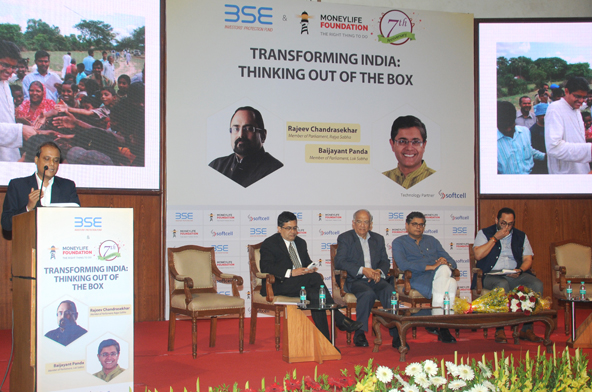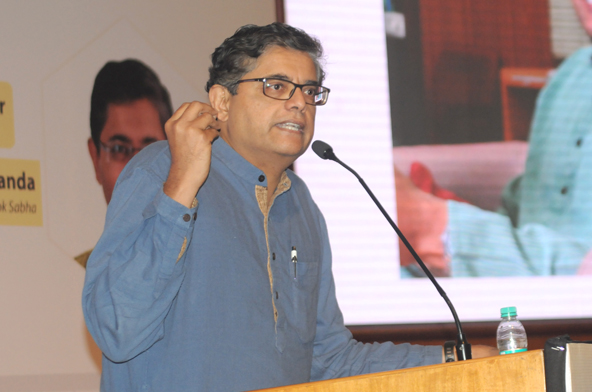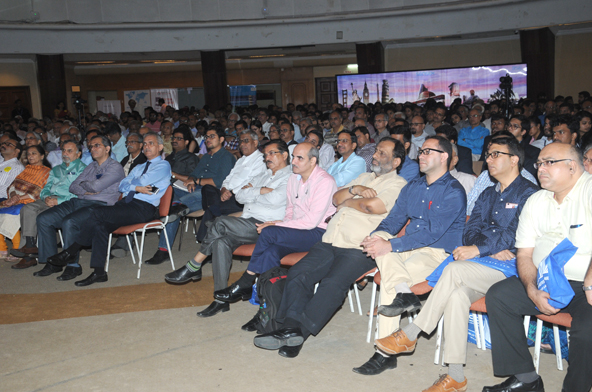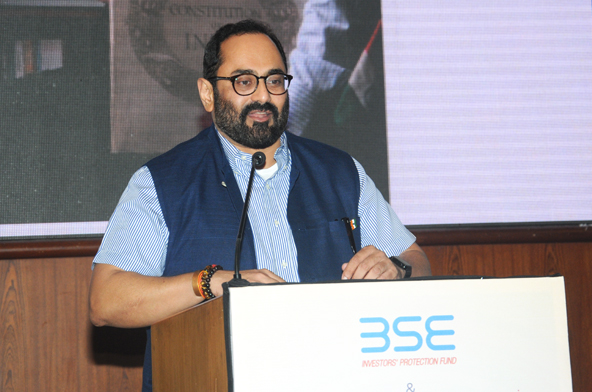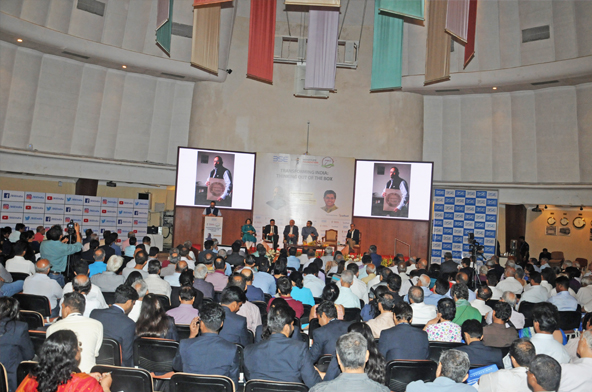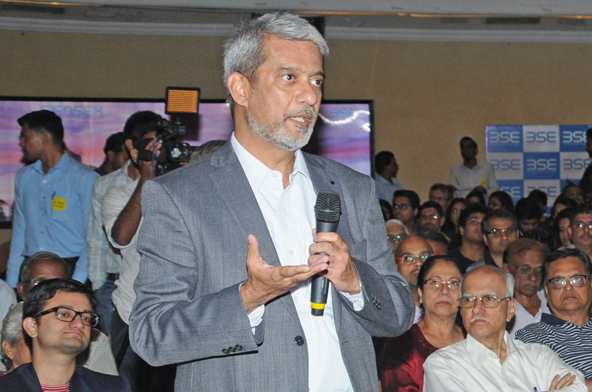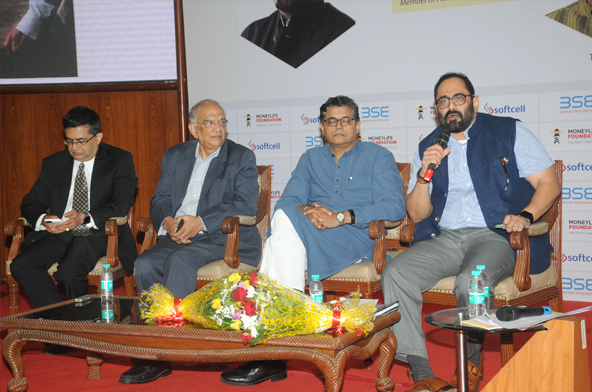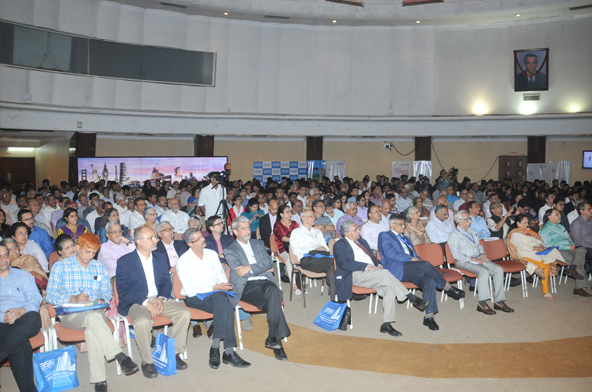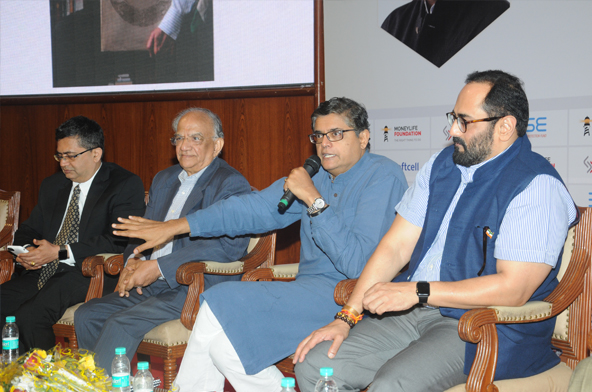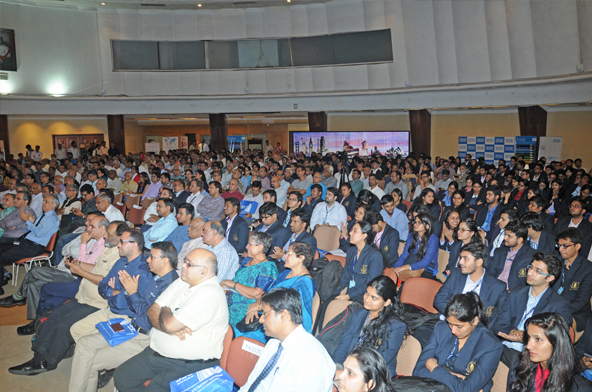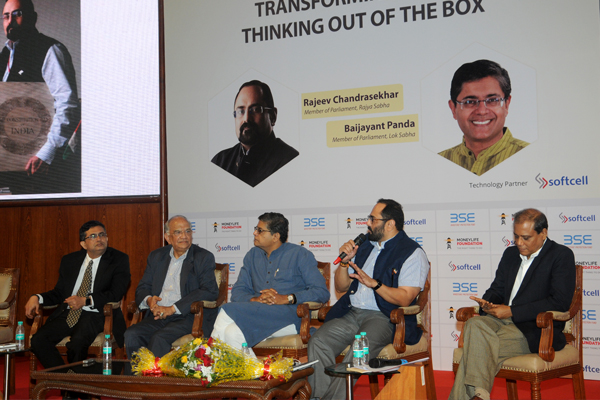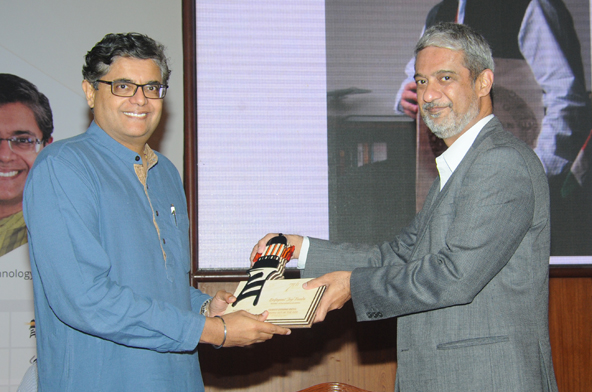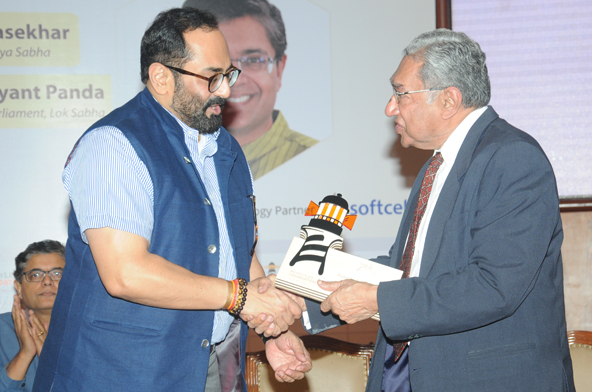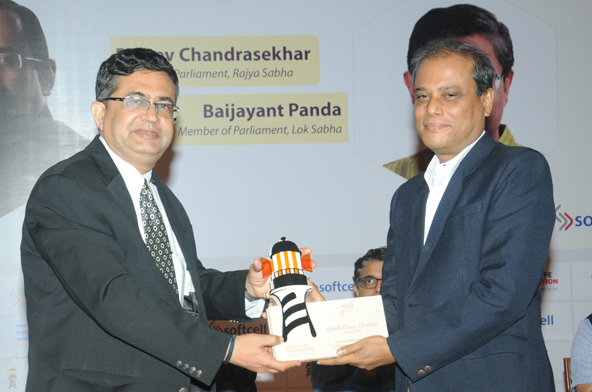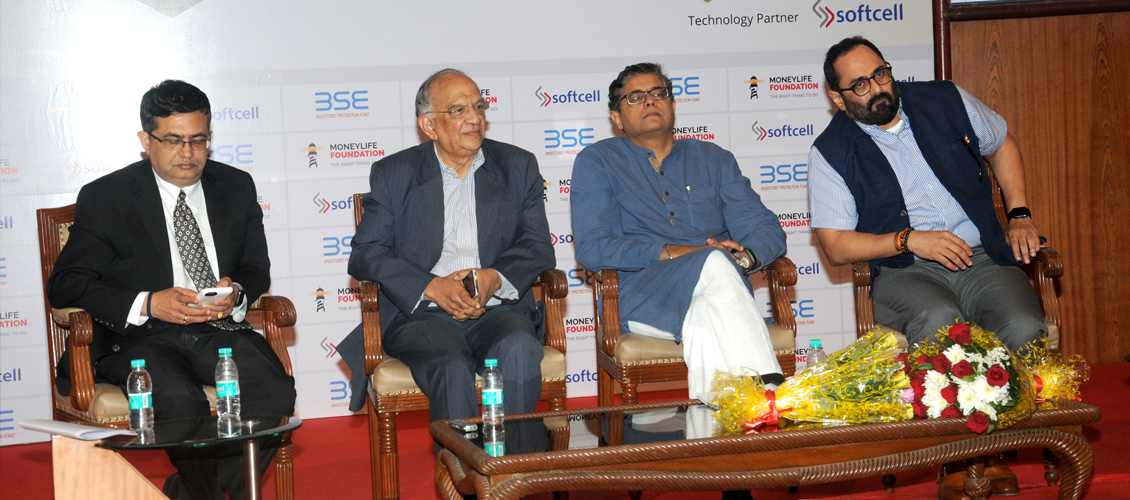
On 4 February 2017, Moneylife Foundation's 7th Anniversary celebration in Mumbai brought together two distinguished Members of Parliament (MPs), Baijayant 'Jay' Panda and Rajeev Chandrasekhar, who are trying to make a difference to India and the way we are governed. “Inspired”, “charged-up” and “rejuvenated” were some of the comments from a 600 plus audience who heard them at the historic convention hall of the newly-listed Bombay Stock Exchange (BSE) on Saturday afternoon. Mr T S Krishnamurthy, former Chief Election Commissioner and Moneylife Foundation trustee presided over the event.
Mr Baijant ‘Jay’ Panda, a rare MP, who has been returning a part of his salary proportional to the time wasted in the Parliament sessions, said India needs three kinds of reforms: electoral, parliamentary and judicial.
For electoral reforms, the Election Commission needs to be given power to assess and penalise political parties for fudging. At the same time, politician needs to be incentivised for using legitimate funds," he said. "Idealism is good but it must be tempered with pragmatism”, in our system, “the money has got pushed under the cupboard”, he said. "I don't have a problem with the amount of money we spend, I have a problem with the legitimacy and transparency of the expenditure."
He went on to argue for state funding of elections and described the US model, where the extent of state funding depends on the amount that a candidate can raise from small denomination contributors. He said, the state contribution ought to be in proportion to funds raised transparently by a candidate. But while those who get large institutional or corporate supporters would get only an equal sum of money, those who raise small denomination contributions from a larger number of people, ought to receive a multiple of the money raised. This would act as a balancing factor and give an equal opportunity for citizen candidates. He attributed former US president Barak Obama’s victory to such $10 and $20 contributions.
A strong believer in the concept of universal basic income (UBI), Mr Panda said it should replace its current social welfare programs including MNREGA, which are "grossly inefficient, corruption-ridden, misdirected towards the better-off, and thus unable to achieve stated objectives". He also said that leakages continued to be high, while the UBI, which is gaining acceptance globally, will put a small amount of money in people’s pocket.
Mr Panda, shocked the well-informed Moneylife audience when he said, “India may be a democracy but unlike other democracies, the government of the day can refuse to implement even an Act that has been passed by the parliament”.
We do not make it obligatory for a government to implement a law, even after it has the President’s assent. He has introduced a private member bill to make it mandatory for the government to implement laws passed by parliament within 90 days. He argued about the need for urgent reform in banking, agriculture, labour laws as well as judicial and administrative reforms in order to become a full-fledged middle-income country.
A strong votary of good governance, Mr Rajeev Chandrasekhar, a Rajya Sabha MP from Karnataka, has been vocal and articulate about the issues of reforms, governance and economy inside Parliament and in various public forums. Mr Chandrashekar talked of the need to educate people about governance – he called it Governance Literacy like financial literacy.
Mr Chandrasekhar said, “India has claimed to spend a lot of money on e-governance but that does nothing for the citizens. Government ministries act independently, with their own set of data without taking a common view. All ministries operate on different basis. There is a need to engage with government sensibly.”
Mr Rajeev Chandrasekhar, an Independent MP in Rajya Sabha, entrepreneur and passionate advocate of civil society issues and the defence forces, says, "We cannot transform unless there is a significant investment in rebuilding our institutions. Regulatory institutions were created for being independent from the government. But over the past two decades, it has essentially become a parking spot for retired bureaucrats.”
Mr Chandrashekar was extremely critical about the damage wrought by discretionary powers employeed by governemnt agencies and bureaucrates. “Government discretion is used to make some people rich and some poor. A country like ours needs to have high quality institutions. A capture of these institutions is used to make some people rich and some poor," he said. He was disturbed at the functioning of self-regulatory bodies, which had become sinecures for retired bureaucrats.
Both the MPs agreed on seeking more engagement from people with their representatives. Voting is the most important, while people should also increase engagement with their local representatives, they said.
Earlier, Ashish Chauhan, Managing Director and Chief Executive of BSE, while welcoming both the MPs, said, "India needs more investment for the long-term and not for speculation". Incidentally, Moneylife Foundation's Seventh Anniversary function was the first public event for the publically listed BSE to be held in the famous Rotunda Hall (now re-named as International Convention Centre), where stock trading by the open outcry method, used to take place during old days.
During the programme, Moneylife Foundation handed over copies of three memorandums, it prepared on corporate fixed deposits, amendments to the Maharashtra Protection of Interest of Depositors (MPID) Act and to the Reserve Bank of India, demanding fairer rules on how our credit information is collated and used.


